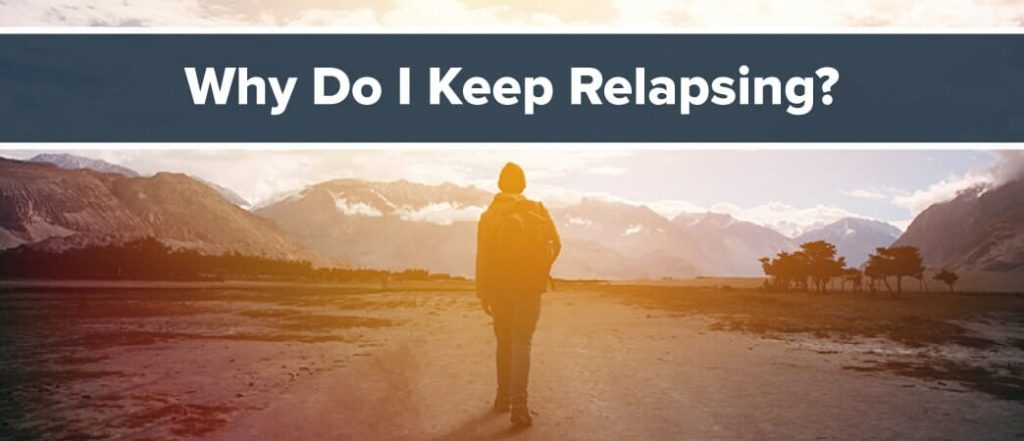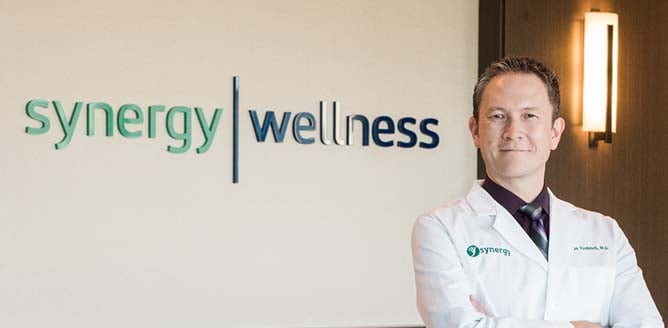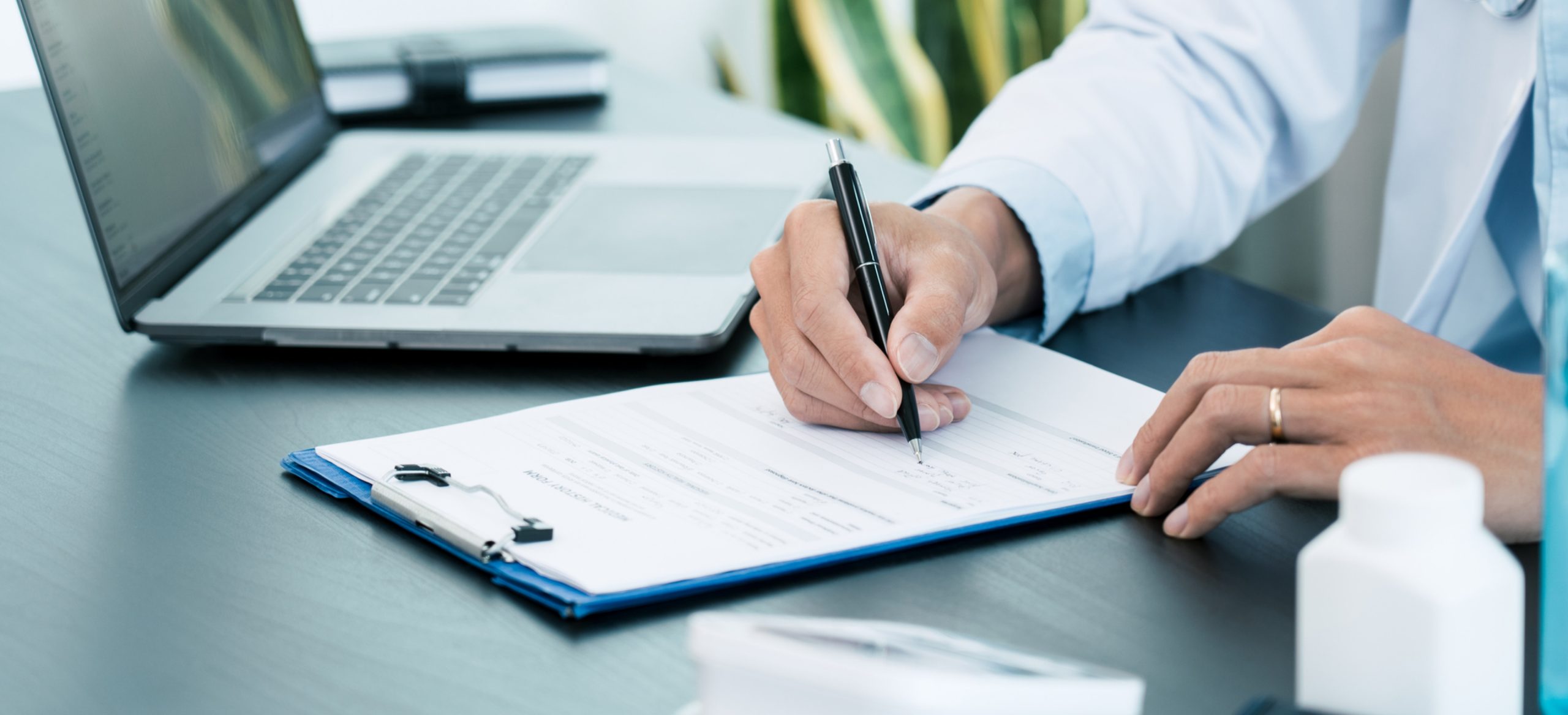
The decision to ask for help in overcoming your addiction marks the beginning of the rest of your life. Initial therapies and getting through detoxification are the first steps that you need to take in this journey. You need a lot of dedication and commitment to remain vigilant and determined with your decision to remain sober. Even while taking these very brave first steps, there is always a possibility of relapsing.
When you recognize that relapse may be part of your journey to a lasting recovery from addiction, some of the pressure is removed. In the early stages of recovery, relapse and the fear of repeating detox may keep you going in your program. As you continue on your recovery journey, the fear of relapsing may subside, but there is always a chance it could happen. Recognizing the signs of an impending relapse and knowing what to do to in order to get back on track with your recovery can keep you from repeated relapses.
Why Drug Addicts and Alcoholics Relapse
The path to addiction is different for everyone, and so is the recovery journey. Addiction to drugs or alcohol is a force that invades your brain and takes over your life. When you are in the throes of addiction, the choices you make are not healthy or even logical sometimes. Everyone knows that drug abuse has serious consequences, and no one sets out to become an alcoholic.
Addiction takes time and a lot of work to overcome. Even with the professional guidance of a qualified rehab program, addiction can hang on to you for a while. Entering a rehab program does not mean you no longer have the urge to use drugs. It just means you are working toward understanding yourself better and finding ways to address your emotions without substances. Rehab is hard, and sometimes addiction just seems easier.
Although addiction recovery is different for everyone, there are some commonalities. Certain conditions are likely to trigger a relapse. When someone is in recovery and having a bad day, they may have an urge to use drugs again to cope with the hard times. Whatever conditions triggered that drug use in the past will probably make them want to use again. Many people who suffer from addiction find themselves abusing substances as a means of comforting themselves in stressful situations. When the emotions of their past traumas threaten to resurface, the habit of relying on drugs for comfort can be automatic until new, healthier habits are formed.
Your drug abuse habits did not develop in one day, and you can expect that the healthier habits you will replace them with will take some time as well. The number one cause of addiction relapse is the strength of addiction’s control over your life through the pleasure centers in your brain. As you work to break the addiction, some other conditions may cause you to relapse.
These are some of the common causes of addiction relapse:
- Stress — This is the most basic reason for addiction relapse. An addict consumes alcohol or drugs to medicate themselves and handle stress. This stress issue can be caused by daily functionalities like handling relationships with kids and spouses, paying bills and hard work in the office. These all are related to common relapse triggers. Significant changes in life, like a family tragedy or losing a job, can also cause a relapse during addiction recovery.
- Missing support system — An addict always needs a support system while he or she is going through recovery. No one overcomes addiction alone. When abstinence is challenged in some way for many alcoholics or addicts, it is important to have someone to turn to. If a person doesn’t build a support system, they can be vulnerable to using drugs or drinking again when they feel
- Strong urges — Powerful desires or urges are possibly one of the biggest reasons behind alcohol or drug relapse. These cravings can be either mental or physical in nature. The mental stress or obsession and physical compulsion for abusing illicit substances can remain with an alcoholic or addict for many years.
- Familiar places or people — During the time period that you drugged or drank, you possibly met a few people or visited various places regularly. Once you are abstinent, you should stop visiting these places and let these people go from your life. Unless you change the ambiance of the friend circle you used to have, there is a possibility you will be highly tempted and will be more encouraged to embrace your past lifestyle again.
When you make the decision to give up your addiction, you will face a lot of difficulties to maintain your sober lifestyle and make new friends. Your loneliness may prompt you to call your old friends and go back to the same old social life again. Recovery from your alcoholism or addiction implies beginning a completely new life. If you don’t develop new routines, new friendships and new places to socialize, you are likely to relapse.
- Loss of judgment — This is another basic reason for alcohol and drug relapse. Following sobriety and quitting their addiction, people sometimes fight against their emotions like confusion, depression and anger. Sometimes it becomes hard for them to relax and make healthy, logical decisions about their lives. Overwhelming emotions can cause a loss of judgment that triggers relapse.
- Unaware of triggers — Simple things like the smell of cigarette smoke can cause an increased desire to use drugs for some people, whereas some people can develop this desire after watching people drinking in a movie or television or just passing by a liquor shop where alcohol is displayed. These triggers are personal. In order to stay abstinent, you should know about the places, people or things that grow your urge to use drugs again. You should learn how you can handle your stress and find new ways of responding to your cravings. Addiction recovery relapse can happen when you are not fully aware of your own triggers.
- Loss of control — Sometimes losing control can be the reason for alcohol or drug relapse. The person who is in the process of recovery may convince themselves they have the capacity of controlling their use of drugs. They may start drinking or using drugs socially, assuming they can stop after just one. Most recovering addicts are not aware of how little control they have over their own behavior. It can take years of abstinence to develop control over your consumption habits. For many addicts in recovery, control over their own consumption can only be managed when they remain completely abstinent.
- Undiagnosed mental health issues — Some people want to self-medicate their psychological health issues like depression or anxiety, which is why they started using drugs and alcohol in the first place. Addiction often covers the signs of a mental illness that is not diagnosed or treated. When mental illness is not addressed during the recovery process, it can lead to relapse.
Many drug addicts and alcoholics relapse because they are still dealing with emotional or psychological issues they cannot handle alone. Sometimes the conditions of your life put extra emotional pressure on you that cannot be managed. At other times, environmental factors, such as the places you visit or the people you interact with, might cause a relapse. Unfortunately, the threat of relapse is part of the addiction recovery process.
Warning Signs You Are Heading for a Relapse
Sticking with a good rehab program can be difficult, but without a recovery plan, relapse is likely to happen. Relapse seems to occur without warning, but if you know what to watch for, you can predict an impending relapse from your addiction recovery program. It’s highly important for an addict in the recovery process to be aware of these warning signs of drug relapse.
Here are a few warning signs that you are heading for a drug relapse:
- You don’t do the things that keep you sober — This is most commonly seen among the drug or alcohol addicts who have been in recovery for a while. They stop doing things that help them maintain their abstinence. They avoid 12-step meetings during their recovery procedure and start making excuses for not working their program any more. Even the recovering alcoholic can suddenly stop processing treatment as they don’t find it comfortable. They may also stop following their doctor’s instructions regarding treatment of an underlying mental disorder.
- You consider your illegal substance abuse days the best days — You may start remembering your days with the experimentation of drinking and drug intake, and these days will appear to be the best days for you. Many addicts may even have had a lot of fun during their substance abuse days. If you find yourself romanticizing the old days and smiling while thinking about those days, that is a strong warning sign that you have forgotten the destructive miseries of your past. This is a warning sign that you are heading for a relapse.
- You suddenly become moody and selfish — Part of addiction recovery is working to change your behavior and your attitude. Recovering addicts can become overly emotional, taking things personally and thinking people are trying to hurt them. You may lose your ability to tolerate any emotional pain, become stubborn and nagging or get irritated and combative easily. If you notice these behavioral changes in yourself, then it’s a strong sign of impending relapse.
- You start finding drinks or drugs harmless — This is the most definite warning sign that you are heading for a relapse. People in recovery know about the destruction and miseries related to drug abuse. Still, if they are found saying it is harmless and good for health, it implies they are on the way to relapse. Denying the dangers of drug use is a danger sign of relapse. People in recovery are encouraged to take responsibility for their actions, but that does not include ignoring how dangerous drugs can be.
- You start looking for the old friends from your past addiction days — You might try to go back to the old days with your old friends when you used to have parties with your drinking buddies or the people who used to share your interest in doing drugs. You may think you can see them and resist the urge to join back in with the drug abuse. You may think you miss the relationship you had with them. This is a strong sign that you are going back to that danger period again and could be heading for a relapse.
- You gradually eliminate all the motivating elements from your life — You gradually cut off all the motivating elements from your life that help you keep yourself balanced and anchored. You might avoid your healthy friends, stop keeping a journal and quit the daily walk that keeps you healthy. You may have already stopped doing the important things for abstinence, and now you will remove everything that keeps you centered and calm. You will become lazier, and your life will become more stressful and chaotic. You will slip back into your past abuse days and may start lying to your close friends and family. When you stop taking care of your mental health, you could very well be on your way to a relapse.
- You suddenly become defensive if somebody notices your behavioral changes — You might embrace a self-righteous, unhealthy attitude and find everyone wrong if they discover this change in your attitude and behavior. You think you can handle sobriety without a recovery program. You may become judgmental about other people who cannot drink without getting drunk or use drugs and then get hooked. You begin to think you are no longer vulnerable to addiction.
Dangers of Repeated Relapse
While the threat of relapse is part of addiction recovery, repeated relapse has its dangers. When you enter rehab, your goal is to overcome addiction and create a long-lasting recovery. The amount of time this process takes varies for each individual. The longer your continual abstinence from drug or alcohol use, the healthier you become.
Relapse represents an interruption in your journey to a healthier, happier life. After a relapse, you have to go back through detox, and in many ways, begin your recovery again. Too many of these interruptions can present dangers to your health and your sobriety.
There are many reasons behind the dangers of repeated relapse:
- No one can give a guarantee that a person in recovery will never relapse. Starting over again after a relapse can seem like an even bigger challenge than before. There is always a chance that an addict will not rebound from a relapse, and it can lead to death.
- Relapse prolongs the timeframe of addiction, which causes increasing physical and mental damage. The more times an addict relapses from recovery, the more damage they are doing to their health.
- Sometimes when people relapse after a phase of abstinence, their situation becomes worse. Their tolerance for drugs is different than they remember it, and there is a higher chance of overdose.
- Drug relapse lowers an addict’s self-esteem and confidence. With this lowered morale, it may be harder for them to prevent the next relapse.
- Both your friends and family suffer considerably when you become an addict and relapse. They may also find it difficult to trust you once again.
Sometimes a person who struggles with addiction and manages to achieve abstinence believes he or she can do it again easily. They may not realize how important it is to avoid a relapse in the recovery process. Each time an addict relapses, it can be harder to get back on track with a rehab program. The ultimate danger of relapse is that your next relapse will last longer than your recovery. Relapse can become permanent.
When an alcoholic or addict relapses, they generally feel anxious, guilty and highly disappointed; this anxiety becomes yet another reason for their need to get back into a recovery program. Relapse triggers can occur at any time suddenly, and that’s why you must have an accomplished strategy to keep yourself safeguarded from substance abuse and to protect your abstinence.
Tips for Preventing Relapse
While the threat of relapse is part of the recovery journey, relapse is not inevitable. Understanding what causes an addict to relapse and knowing common drug relapse triggers can help you avoid relapse on your path to a substance-free life. Here are some proven tips for reducing the effects of relapse or preventing it:
- Stick with positive people — If you want to get rid of addiction or alcoholism, stop meeting your drinking buddies while you are in recovery. It increases the chances of relapse. The level of commitment to abstinence grows when you surround yourself with positive energies offered by sober people who lead healthy lives.
- Learn new ways to fight against addiction or alcoholism — Some addicts in recovery get a great feeling of well-being in the first weeks or months of sobriety, but this doesn’t mean they don’t need to do any hard work to learn how to handle the ups and downs of their lives. Recovering from addiction means learning new ways to deal with stress and emotional life changes.
- HALT – Hungry, Angry, Lonely, Tired — HALT is a popular acronym in the recovery community that reminds you of the most common triggers to relapse. Try to organize your life so you can avoid becoming hungry, angry, lonely or tired. Learn to recognize these feelings and develop an appropriate strategy to deal with them without drugs. If you feel the urge to relapse, reach out for help.
You can avoid relapse by reaching out for help when you feel yourself slipping. When you recognize the warning signs of relapse, ask for help. Instead of hiding your warning signs, tell someone in your support group about them. Reach out to a close friend or family member who can give you the support you need to continue with your recovery.
Everyone has bad days, and sometimes they relapse. If it happens to you, get back in your rehab program as quickly as possible. Talk with a counselor about dealing with the shame and guilt. Addiction can be overcome, and with the right treatment, support and belief in yourself, you can live a healthy happy life without substances.
If you or a loved one are struggling to remain clean and sober, contact Synergy Recovery Services for help. Our team of highly trained, caring experts can help you get back on the road to long-term recovery.



